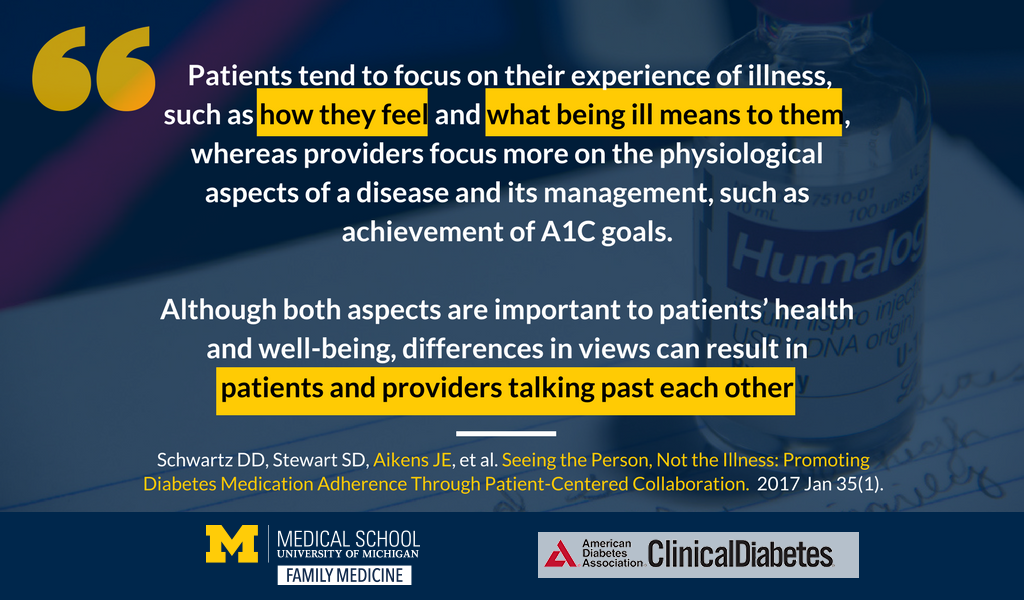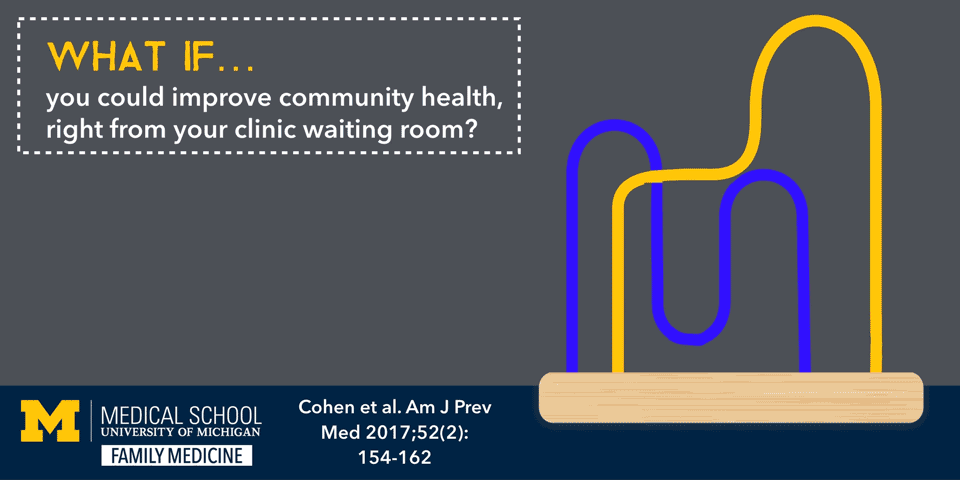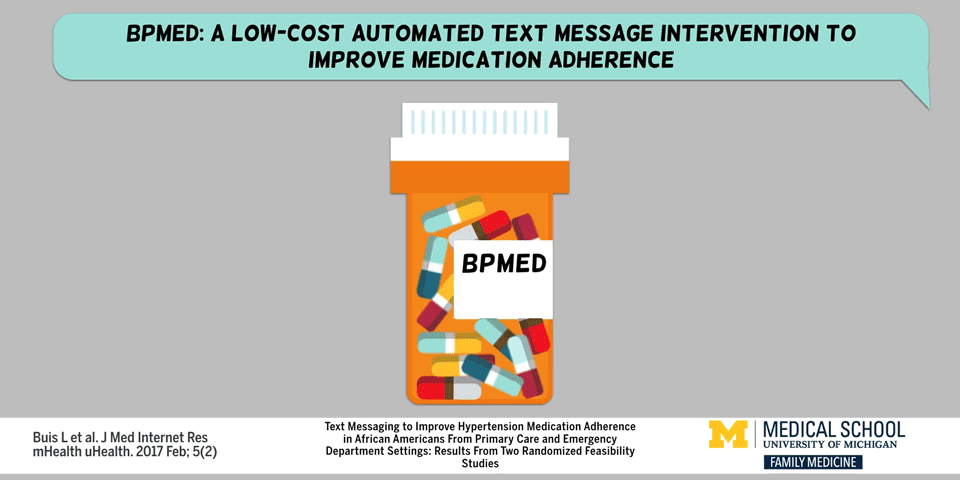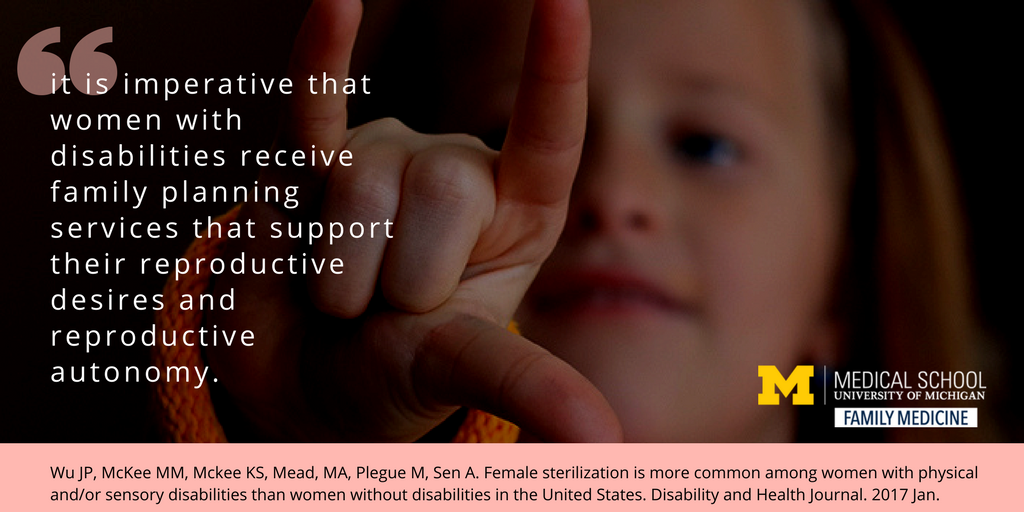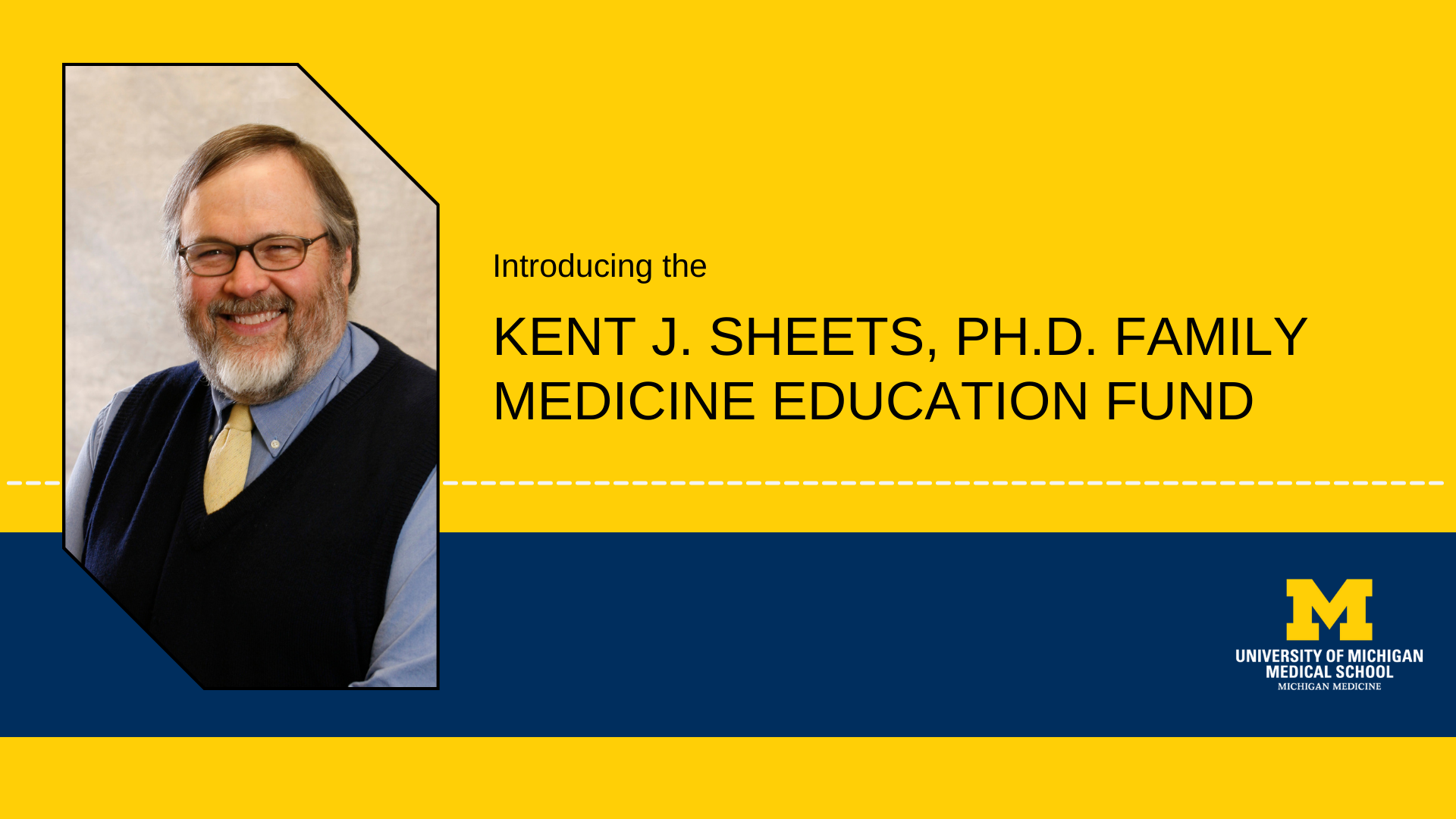Want to improve your patients' medication adherence? Approach with empathy and curiosity
Highlight: "Understanding the challenges of diabetes management from the patient’s perspective will give providers better insight into adherence barriers and provide a foundation for stronger collaboration."
Citation: Schwartz DD, Stewart SD, Aikens JE, et al. Seeing the Person, Not the Illness: Promoting Diabetes Medication Adherence Through Patient-Centered Collaboration. Clinical Diabetes 2017 Jan; 35(1): 35-42. doi: 10.2337/cd16-0007
Browse the latest U-M family medicine research on adherence and lifestyle change.
Starting a Farm to Clinic movement to address food insecurity from a primary care perspective
Highlight: "A brief clinic-based intervention was associated with a nearly fourfold increase in uptake of a SNAP incentive program, as well as clinically and statistically significant increases in produce consumption. Results suggested sustained behavior change even once the financial incentive was no longer available. Providing information about healthy food incentives is a low-cost, easily implemented intervention that may increase produce consumption among low-income patients."
Citation: Cohen AJ, Richardson CR, Heisler M, Sen A, Murphy EC, Hesterman OB, Davis MM, Zick SM. Increasing Use of a Healthy Food Incentive: A Waiting Room Intervention Among Low-Income Patients. American Journal of Preventive Medicine Volume 52, Issue 2, February 2017, Pages 154–162. DOI: 10.1016/j.amepre.2016.11.008
PRESS RELEASE AVAILABLE
Text message alerts help patients with hypertension remember to take meds
Highlight: "It’s a simple intervention,' says Buis. 'It’s clear that a text message program may not be appropriate for everyone; however, for a large subset of people, this may be a feasible, acceptable and low-cost strategy to motivate positive behavior changes.'"
Citation: Buis L, Hirzel L, Dawood RM, et al. Text Messaging to Improve Hypertension Medication Adherence in African Americans From Primary Care and Emergency Department Settings: Results From Two Randomized Feasibility Studies. J Med Internet Res. 2017 Feb; 5(2). doi: 10.2196/mhealth.6630
Browse the latest U-M family medicine research on clinical informatics and technology and adherence and lifestyle change.
Comparing rates of reversible versus irreversible contraception use for women with disabilities
Highlight: "From 2011 to 2013, nearly one-third of U.S. women with physical/sensory disabilities, representing 1.2 million women, used female sterilization as a primary contraceptive method. Even after adjusting for age, race/ethnicity, education, insurance, marital status, parity and self-reported health, the odds of sterilization were higher for women with disabilities....Future research is needed to assess if similar trends in LARC use are occurring among women with disabilities. However, there are reasons to be concerned that barriers to LARC access disproportionately affect women with disabilities."
Citation: Wu JP, McKee MM, Mckee KS, Mead, MA, Plegue M, Sen A. Female sterilization is more common among women with physical and/or sensory disabilities than women without disabilities in the United States. Disability and Health Journal. 2017 Jan. DOI: 10.1016/j.dhjo.2016.12.020
Browse the latest U-M family medicine research on reproductive and women's health and disability health.
A longitudinal look at the first cohort of family medicine residents in Shizuoka, Japan
Highlight: "A resident self-competency assessment provides a simple and practical way to conduct an assessment of skills, to monitor skills over time, to use the data to inform residency program improvement, and to demonstrate the breadth of family medicine training to policymakers, and other stakeholders."
Citation: Fetters MD, Motohara S, Ivey L, et al. Utility of self-competency ratings during residency training in family medicine education-emerging countries: findings from Japan. Asia Pac Fam Med. 2017 Jan 10;16:1. doi: 10.1186/s12930-016-0031-1
Browse the latest U-M family medicine research on global primary care.
Essay in the New England Journal of Medicine Catalyst calls for deeper questions in medical training
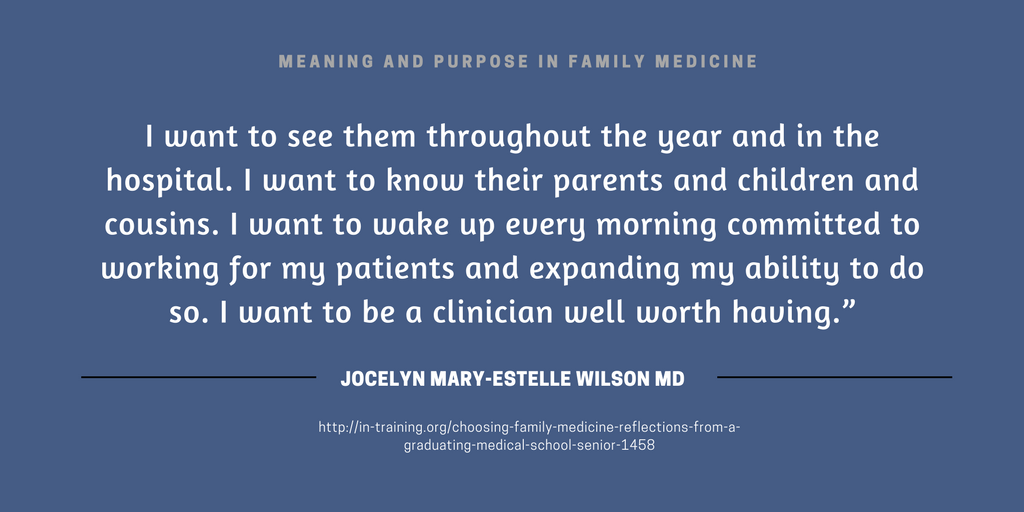
Highlight: "Cultivating a sense of meaning and purpose during medical training can also create a personalized lattice onto which knowledge and facts can attach and grow. It is easier to remember the mechanism of each contraceptive method when you feel a sense of purpose to reduce reproductive injustices faced by low-income women, or the anatomy of a joint if you find meaning in preserving mobility and independence among the injured or elderly."
Citation: Meaning and Purpose: Refocusing on the Why in Medical Education. Nejm.org. http://catalyst.nejm.org/meaning-and-purpose-medical-education. Published February 1, 2017. Accessed February 28, 2017.
BLOG EDITORIAL ON FINDING MEANING AND PURPOSE AS A FAMILY MEDICINE DOCTOR
Diet Could Help Breast Cancer Survivors Beat Fatigue
Highlight: "A 3-month whole foods dietary intervention compared to an attention control was able to significantly improve persistent cancer-related fatigue by over 44% compared to only 8% in the attention control group (p=0.01). In addition, women randomized to the dietary intervention also experienced a significant improvement of nearly 50% in sleep quality while women in the control group experienced no change or a slight decrease in their sleep quality (p=0.03)."
Citation: Zick SM, Colacino J, Cornellier M, Khabir T, Surnow K, Djuric Z. Fatigue reduction diet in breast cancer survivors: a pilot randomized clinical trial. Breast Cancer Res Treat. 2016 Dec 2. DOI: 10.1007/s10549-016-4070-y
Browse the latest U-M family medicine research on integrative and alternative medicine.

